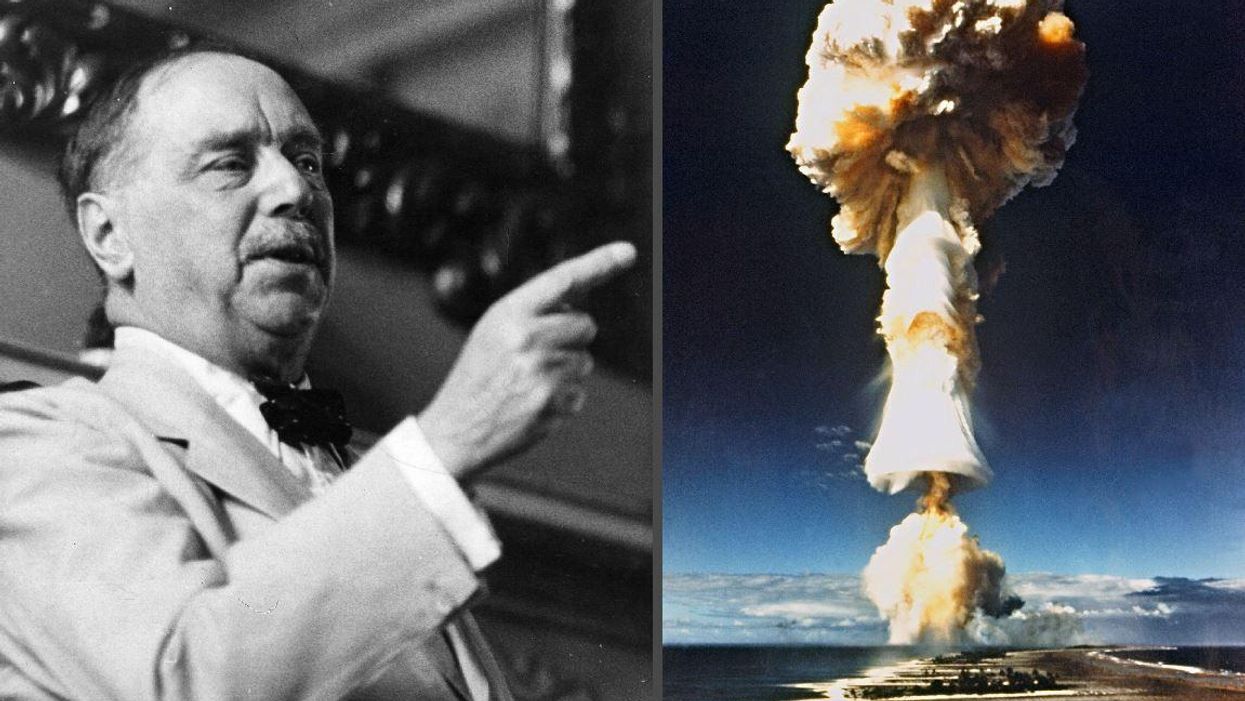
HG Wells was a 20th century British writer whose work about time travel, futuristic technology and the uneasy truce between society and government influenced writers and directors for years to come.
Wells was also known for his eerie and sometimes outlandish predictions about the future.
Perhaps one of his most well-known failed predictions was the development of a Utopian society where everyone is educated, and work in jobs that satisfy them under the umbrella of a 'world state'.
And while this hasn’t come to fruition, here are a number of prediction which have come true:
1. Nuclear weapons
Book: The World Set Free (1914),
Wells’ bombs were made from ‘lumps of pure Carolinum’ which produce a ‘blazing continuous explosion’ not unlike the atomic bombs of today.
2. Globalisation
In the same book, he warned that the only way to stop states from destroying one another through nuclear warfare was to develop a global government, where nations hold one another accountable. While his 'global government' failed, we do have a number of global alliances and the Treaty on the Non-Proliferation of Nuclear Weapons (NPT).
3. Genetic engineering
Book: The Island Of Dr Moreau (1896).
In the book, Dr Moreau experiments with vivisection and creates human/animal hybrids.
Today, interspecies embryos are created in labs for the purposes of genetic research.
4. Lasers
Book: The War of the Worlds (1898)
The ‘Heat-Ray’, a futuristic weapon brought to Surrey by martians, fires energy streams powerful enough to incinerate buildings and flesh.
Sound familiar?
5. Aircraft
Book: When the Sleeper Wakes (1899)
The protagonist, Graham, wakes up in the year 2100 and learns how to fly in an aeroplane.
6. International Court of Human Rights
Book: The Rights of Man; Or What Are We Fighting For? (1948)
He argued that following the end of the Second World War, a universal set of human rights needed to be established, and an international court to reinforce them.
7. Tanks
Book: The Land Ironclads (1903)
Some 13 years before the tank was unveiled in the trenches of the First World War, Wells was already describing them in his short story:
In that flickering pallor it had the effect of a large and clumsy black insect, an insect the size of an ironclad cruiser, crawling obliquely to the first line of trenches and firing shots out of portholes in its side.
8. Mobile phones
Book: The Shape of Things to Come (1933)
The invention in his story was used as a form of wireless communication.
9. Television
Book: When the Sleeper Wakes (1899)
The main character wakes up after two hundred years of sleep, to a futuristic London in which people own technology like the audio book and the TV.
HT: Quartz
More:This guy fooled the world into thinking he had predicted the future
More:The test that predicts if your relationship will last













